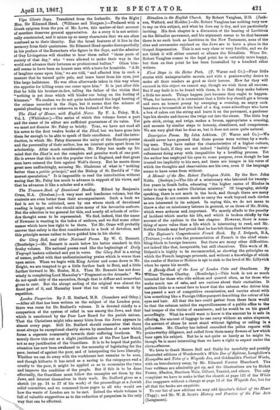The Iliad of Homer, with English Notes. By F. A.
Paley, M.A. VoL I. (Whittaker.)—The series of which this volume forms a part and the name of its editor are sufficient guarantees of its value. Yet we must not dismiss Mr. Paley so briefly. True, we have not read all his notes to the first twelve books of the Iliad, but we have gone into them far enough to be able to speak of their excellence. And the intro- -duction, in which Mr. Paley discusses the unity of the Homeric poems and the personality of their author, has an interest quite apart from its scholarship. After mach consideration, Mr. Paley has made up his mind that the Iliad is not the complete and genuine work of one poet. He is aware that this is not the popular view in England, and that great men have entered the lists against Wolf's theory. But he meets those great men unflinchingly, accusing Mr. Gladstone of what is "nothing better than a petitio principii," and the Bishop of St. David's of "the merest speculation." It is impossible to read the introduction without seeing that Mr. Paley has much to advance in support of his views, and that he advances it like a scholar and a critic.






























 Previous page
Previous page